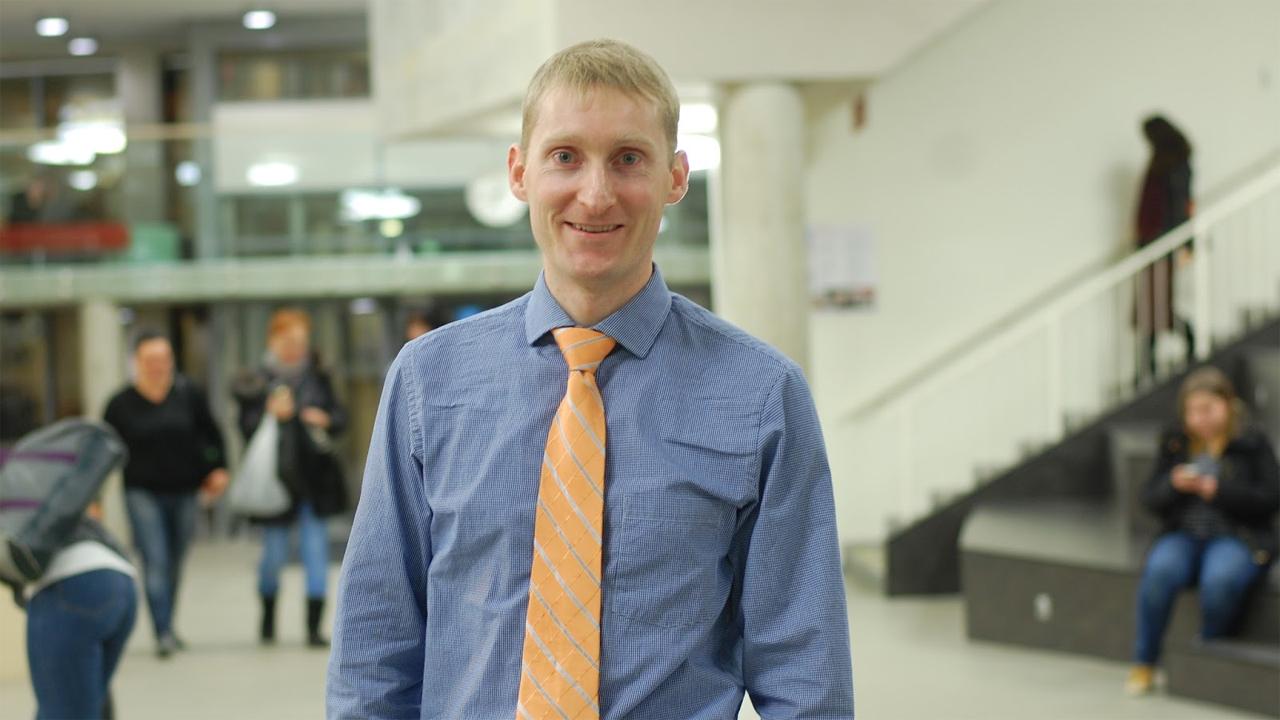Matthew Crandall: Estonia is a very connected place

The Associate Professor of International Relations Matthew Crandall has been around for a while. We have seen him in national news, commenting on the recent US Presidential elections (in Estonian!), logistics and migration. We asked him a few questions about his personal life and work here at Tallinn University, this is what he had to say: Please, describe yourself briefly. How did you come to study and teach international relations, what is your general background and how did you come upon Tallinn University? I am from the United States and grew up in a small town in the state of Idaho. I signed up for a volunteer program in Estonia and was in the country when Estonia joined the EU and NATO. Being in Estonia at this time was fascinating for a young American. Many issues stuck out, integration issues in society, a different political system, and membership in EU and NATO and what that meant for the country. When my volunteer program ended I returned to the United States and majored in Political Science. I later came back to Estonia for graduate studies. I received my master’s degree from the University of Tartu and PhD from Tallinn University. How long have you been at Tallinn University / in Estonia? How does it compare to other places of work? How has the adaption process been and are there some things impossible to get used to? I’ve lived in Estonia for over 10 years all together, permanently for over 8 years. Tallinn University is a great place to work, the level of academic freedom is high, creativity is appreciated and there are many opportunities to pursue one’s interests. It is a different educational culture than the United States and like any new environment, it takes time getting used to. How do you see the structural reform process from your standpoint? Do you see the new ELU project as something that could enhance studies at TU, or should students focus on a single discipline? The structural change meant new bosses but at the end of the day, there are students to teach and articles to write no matter what the structure. I generally think it is positive to have a bigger institute, it makes coordinating easier in many ways. One theme of the reform was Interdisciplinary studies. That is an admirable goal but it is hard to accomplish in a 3+2 programme. Normally a four-year BA programme would have a year’s worth of general education courses. The three BA programme is normally focused on a single discipline to improve efficiency. A single project is not going to be able to compensate for an extra year, but it has the potential to have a positive impact on the students. How do you see the internationalisation and soft security landscape in Estonia? If and how could Tallinn University and your endeavours help develop the system to a better level? Tallinn, and Estonia overall are globalizing at an increasing rate. When looking at peoples, goods, services, Estonia is a very connected place. Overall this is a positive for Estonia’s security and prosperity. The more interconnected Estonia is the more Estonia’s own national interests will be shared by the international community. Questions asked by Karl Hallik, photo by Tajzan Sharif Matthew Crandall is also the curator of the International Relations MA programme. Read about the programme from our webpage.